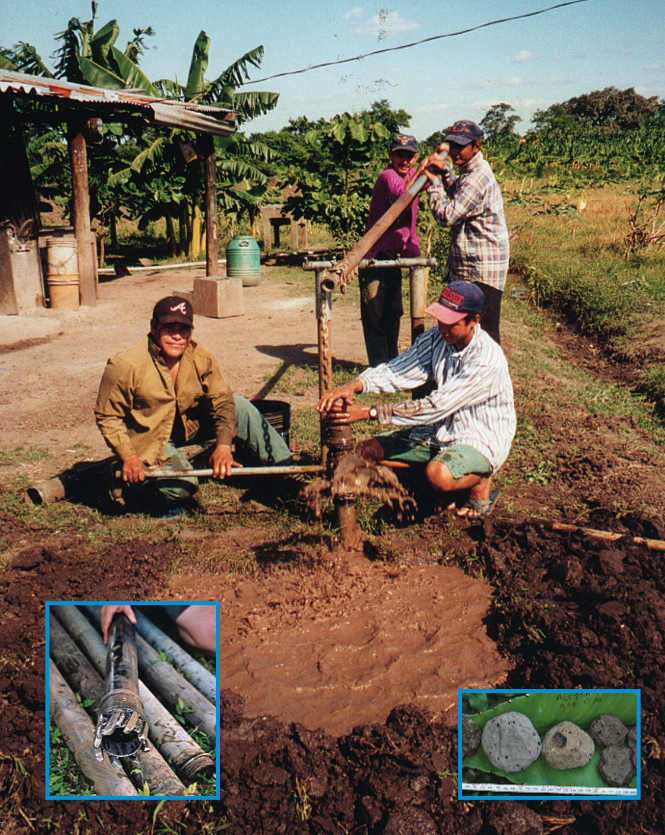Groundwater - Rota sludge well drilling
From Akvopedia
The Rota-sludge method is an adaptation of the Indian hand sludge method. The hardened drill bit is turned 90 degrees during drilling thus chiselling the bottom of the hole. This technology can be used to drill 2-5 inch wells in layers with sand, clay, gravel, tuff stone or weathered rock.
| Advantages | Disadvantages |
|---|---|
| Drills in hard soils.
|
|
Capacity
40 litres / min from 10 meters depth.
Costs
- US$ 20-120 depending on model.
Applying conditions
- Numbers: 50,000 in Nicaragua, 20,000 in Mexico, Honduras, Guatemala, Ghana, Zimbabwe, Tanaznia, Senegal.
- Range of depth: 1-35 meter (60 m with two cranks).
- Application Communal wells, houshold, irrigation.
- Cost of introduction: US$ 10,000-20,000 per project, including 20 pumps, engineering and hands-on training. US$ 60,000-100,000 per project, including 1,000 pumps, production workshop and hands-on training.
Rope pump building manual
PRACTICA foundation and the Technical Training Programme of the ETC Foundation (TTP/ETC) have put together a really excellent manual on how to build rope pumps (PDF, 2.5 Mbyte). It is an 86 page long document with detailed instructions.
External links
- Evaluations www.irc.nl
- Africa www.pumpaid.org
- General info www.ropepump.com
- How to build www.ropepumps.org

